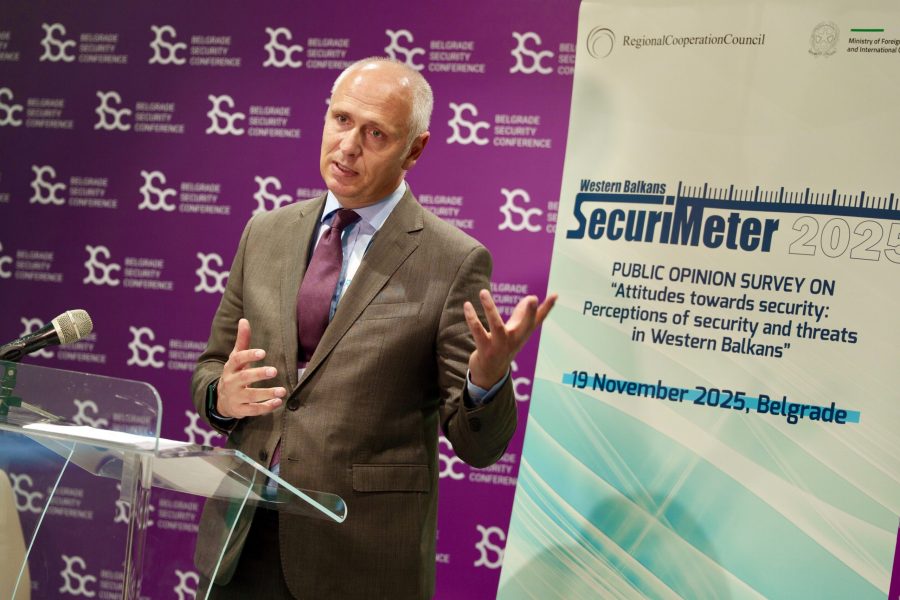The Regional Cooperation Council (RCC) on Wednesday presented the findings of its 2025 SecuriMeter survey, which shows that economic pressures, declining trust in institutions and the credibility of the European Union path are shaping public perceptions of security across the Western Balkans.
The fifth edition of the annual survey is based on responses from more than 6,000 citizens and offers one of the most detailed snapshots to date of how people in the region view governance, stability and their future prospects.
RCC Secretary General Amer Kapetanović said trust emerged as the main theme of this year’s results. “When institutions deliver, trust grows; when reforms are visible, confidence grows; and when the European path is credible, trust rises at home as well,” he said at the Belgrade Security Conference.
Economic strain and weak institutions top concerns
Across the six Western Balkan economies, inflation, the cost of living, corruption and perceived institutional decline were the most frequently cited pressures. According to the survey:
-
More than 80% of respondents see corruption as widespread;
-
Nearly one in three believes institutions perform worse than five years ago;
-
About 27% are considering leaving their country.
RCC analysts said the findings point to weakening economic and institutional resilience and growing uncertainty about the region’s direction.
Institutional performance linked to trust
The survey’s econometric model shows that better-perceived institutional performance increases trust by 10%, while lower perceived corruption raises it by 9%.
Parliaments, governments and courts remain among the least trusted institutions, while the EU, the business sector and religious organisations receive significantly higher trust scores. The report notes that citizens value transparency, fairness and effective service delivery over political messaging.
Young adults aged 18–24 show the highest levels of trust in institutions, particularly in the EU. Respondents who trust the EU are 37% more likely to trust their own domestic institutions, the model finds — a link RCC says underscores the psychological and political importance of a credible EU accession path.
Panel discussion and SEESAC visit
The findings were presented by RCC Senior Security Expert Aner Zuković and discussed at a panel moderated by Pavle Janković, head of the RCC political department. Speakers included academics and analysts from Serbia, Croatia, Albania and North Macedonia, who examined the results through the lens of economic pressures, democratic governance, youth expectations and cyber threats.
Ahead of the conference, Kapetanović met Bojana Balon, head of the South Eastern and Eastern Europe Clearinghouse for the Control of Small Arms and Light Weapons (SEESAC), a joint RCC–UNDP initiative. He praised SEESAC’s long-running work on arms control, gender equality and regional cooperation.
SecuriMeter is funded by Italy’s Ministry of Foreign Affairs and International Cooperation. The full 2025 edition is available on the RCC website.



